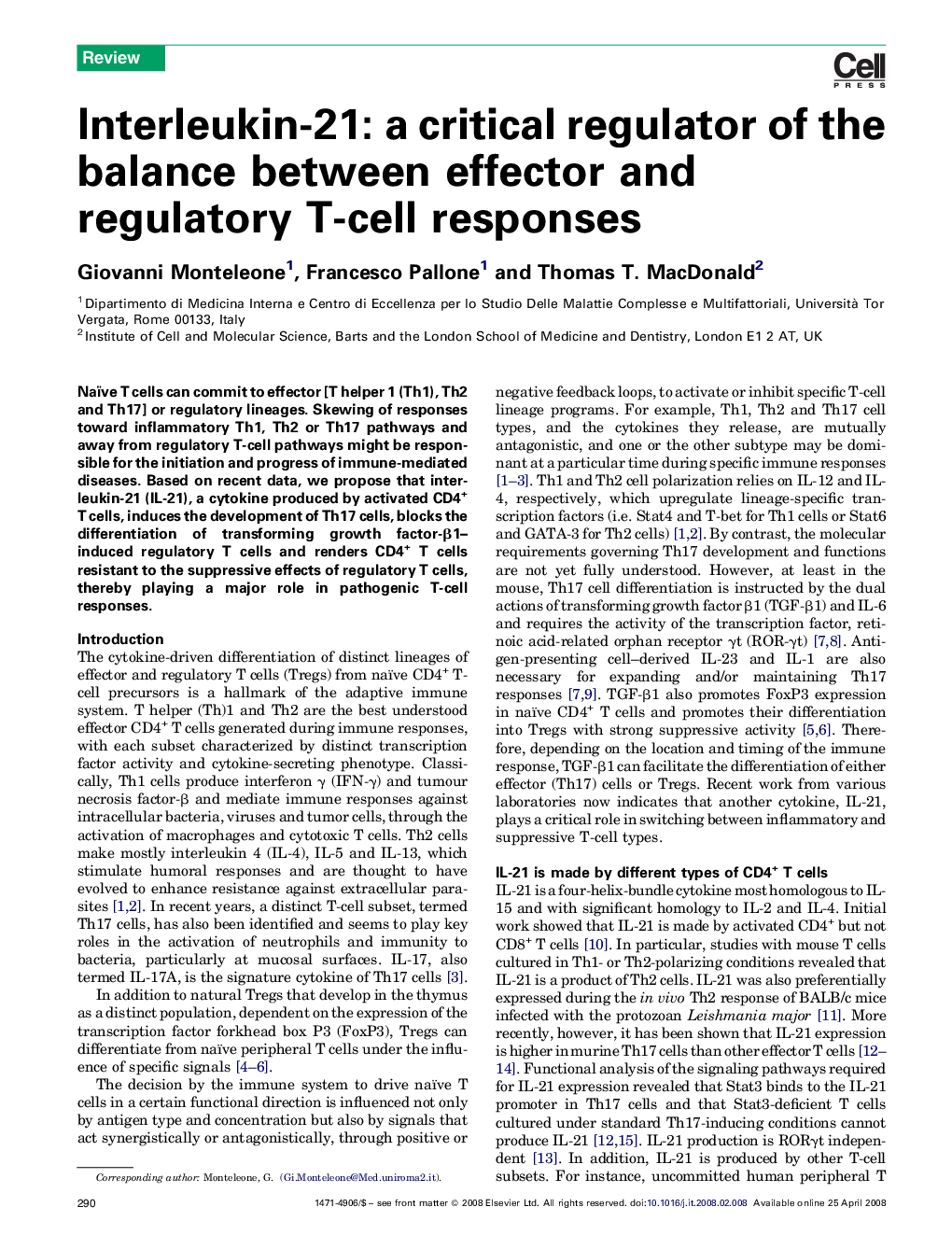| Article ID | Journal | Published Year | Pages | File Type |
|---|---|---|---|---|
| 4360522 | Trends in Immunology | 2008 | 5 Pages |
Abstract
Naïve T cells can commit to effector [T helper 1 (Th1), Th2 and Th17] or regulatory lineages. Skewing of responses toward inflammatory Th1, Th2 or Th17 pathways and away from regulatory T-cell pathways might be responsible for the initiation and progress of immune-mediated diseases. Based on recent data, we propose that interleukin-21 (IL-21), a cytokine produced by activated CD4+ T cells, induces the development of Th17 cells, blocks the differentiation of transforming growth factor-β1–induced regulatory T cells and renders CD4+ T cells resistant to the suppressive effects of regulatory T cells, thereby playing a major role in pathogenic T-cell responses.
Related Topics
Life Sciences
Immunology and Microbiology
Immunology
Authors
Giovanni Monteleone, Francesco Pallone, Thomas T. MacDonald,
